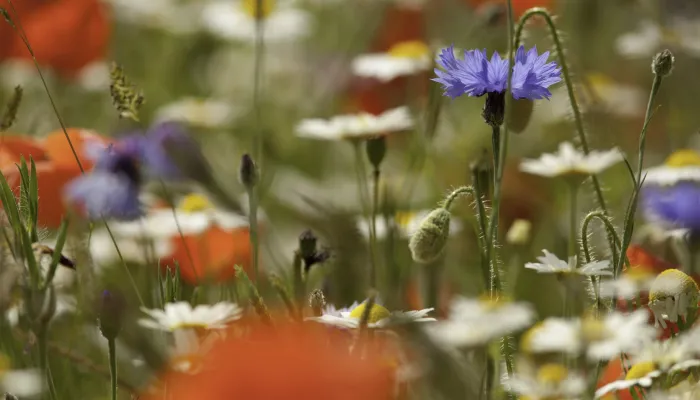Learn how to use botanical keys to identify wild flowers. Using a key is not rocket science but can be fun. The important thing is to understand the terminology used and to hunt carefully for the distinguishing features.
About the event
This two-day course is designed to give you confidence at identifying plants using botanical keys. In order to do so, this course will give you a better understanding of botanical terms and flowering plant classification. You will then practice the ID skills you have learnt in the field.
Many of us know the names of very familiar plants such as buttercups or poppies. But trying to work out which buttercup or which poppy or the identity of other unfamiliar species can sometimes seem overwhelming. Picture-matching, although enjoyable, can sometimes be inconclusive or even, unwittingly, inaccurate.
Botanical keys focus on the important distinguishing features. Often these key features are seen better with a hand lens. Using a botanical key is not rocket science: the process is logical, straightforward and usually quite rapid. It is also good fun – like a treasure hunt. What puts most people off is the prolific use of botanical terms. Even the simpler keys use at least some terminology, because one-word terms, avoid the use of long descriptive phrases. And above all the key aims to be concise.
Much of this course will be devoted to understanding these botanical terms and how to interpret them in the context of identifying plants. We will start in the classroom, taking time to study each plant specimen carefully, at the same time as working our way through the keys to their identity. We will work as a group on specimens of the same species at any one time.
By day two you will spend more time practising outside, identifying the plants in Tyland Barn nature park. You will have plenty of opportunity to have a go on your own or working in pairs, but always under supervision.
Many of the key identification features are also the features that botanists use to classify plants into look-alike groups. This course will encourage you to appreciate the key characteristics of different ‘families’ (and ‘genera’). Recognising such characteristics provides shortcuts in the process of using botanical keys.
By the end of the course it is expected that you will have gained:
- A working knowledge of relevant botanical terms
- An insight into flowering plant classification
- Greater confidence in using scientific keys to Identification, notably of plants
Led by Ros Bennett, Botanist
This course is suitable for beginners with no prior knowledge of floral structure or using scientific keys to ID as well as for improvers who know some plant species (or even several) but who struggle with using keys as a means of identifying those they don’t know.
What to bring
- Notebook and pen
- Suitable outdoor clothing
- Packed lunch and something to drink.
Nothing else is essential but if you have any of the following please bring them too. (We will be using the first 3):
- Hand lens (x 10 Magnification)
- The Wild Flower Key by Rose and O’Reilly (Warne)
- New Flora of the British Isles by Stace (CUP ideally 4th edit)
- Any other plant Identification books that you may have
NB Hand lenses may be borrowed or purchased (c.£8.00) during the course and there will also be copies of Rose’s Wild Flower Key available to borrow and a few copies of the second edition of Stace.
-
Accessible toilet
-
Accessible trails
-
Baby changing facilities
-
Disabled parking
-
Picnic area
-
Toilets
Accessible
Tyland Barn is wheelchair accessible. All surface path around wildlife garden. Pond with accessible platform. Disabled access to the barn and nature park (with a short nature trail) is very good.

